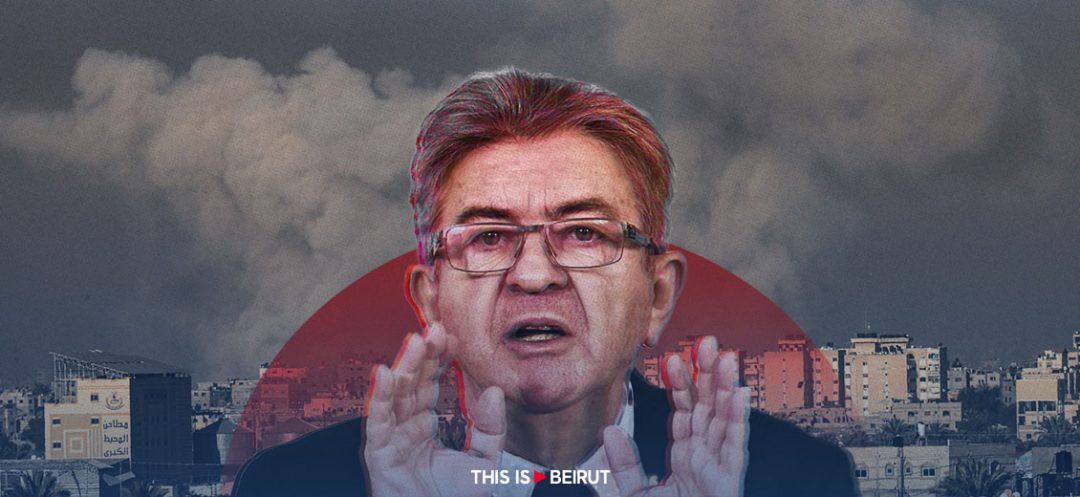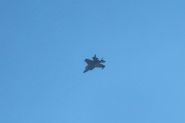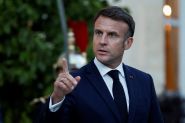- Home
- War in the Middle East
- Editorial- Closely Following in Mélenchon’s Footsteps

It was a somewhat mysterious and very discreet visit that Jean-Luc Mélenchon paid to Beirut last week. The leader and founder of the French opposition movement 'La France insoumise' (LFI) was tight-lipped during his brief stay in Lebanon. However, the echo of his recent positions regarding Hamas, following the deadly attack on October 7th, had already reached Lebanon.
In various statements to the French media, and even during his brief visit to Beirut, Mélenchon has consistently avoided labeling Hamas as a terrorist organization. His comments reveal a thinly veiled complacency, not to mention an outright empathy, for the Palestinian fundamentalist movement. Casting himself as a flag bearer for the French far-left, he adopts a political strategy centered on persistent "conflictualization," using fervent and inflammatory rhetoric unleashing unrestrained criticism on anything and everything in politics.
In the context of Lebanon, this strategy would be perceived as an extensive “deconstruction” effort across all levels and sectors. It should be mentioned that both Hamas and Hezbollah consistently adhere to this approach. Therefore, it's not unexpected that Jean-Luc Mélenchon demonstrates a certain complacency towards these two organizations. Much like him, they are committed to fostering a persistent climate of ongoing conflict, bolstered by belligerent rhetoric.
In a recent interview, the founder of the LFI emphasized that "Hezbollah is an important component of Lebanon," a statement indicative of a profound misunderstanding of the pro-Iranian party. Wasn’t Mélenchon previously informed that, for instance, Hezbollah’s political charter explicitly states that the Shiite organization pledges absolute and unconditional allegiance to the Supreme Leader of the Iranian Islamic Revolution for all decisions of strategic nature, including those pertaining to war and peace?
Has Mélenchon not acknowledged the declaration by Hezbollah’s leader, who openly deemed it an “honor” to be a "simple soldier in the army of the Waliy al-Faqih" (the Supreme Leader of the Islamic Republic in Tehran)? Given this revelation, how can the leader of the LFI assert that the pro-Iranian party is "an essential component of Lebanon"? How can Mélenchon overlook the fact that Hezbollah has been actively pursuing a deconstruction strategy in Lebanon for several years? On a regional scale, it acts as a pivotal force behind the destabilizing expansionist policies implemented in multiple countries in the region by the Islamic Revolutionary Guard Corps.
Regarding Hamas, has Mélenchon duly acknowledged the statements made by Khaled Meshaal and other senior officials of the Palestinian fundamentalist organization? These individuals openly, publicly, and unapologetically espouse a discourse infused with hatred, blatant racism and, in some instances, unabashedly calling for collective violence.
In this respect, how can Mélenchon refrain from labeling Hamas as a terrorist movement?
In the midst of the Lebanese war, a Belgian journalist conducted an interview with Béchir Gemayel. Within this context, he accused Gemayel of attempting to force the Palestinians out of Lebanon. The journalist pointedly asked, "Where would you suggest the Palestinians should go?" In response, Béchir Gemayel spontaneously hinted, "You can take them to Belgium, sir." Today, there are discussions about the potential evacuation of besieged high-ranking officials and leaders of Hamas to third-party countries. Jean-Luc Mélenchon might want to consider suggesting his French region as a host for these officials and leaders of the Palestinian jihadist organization, thereby exhibiting a degree of consistency in his strategy of comprehensive "conflictualization"!
Read more




Comments